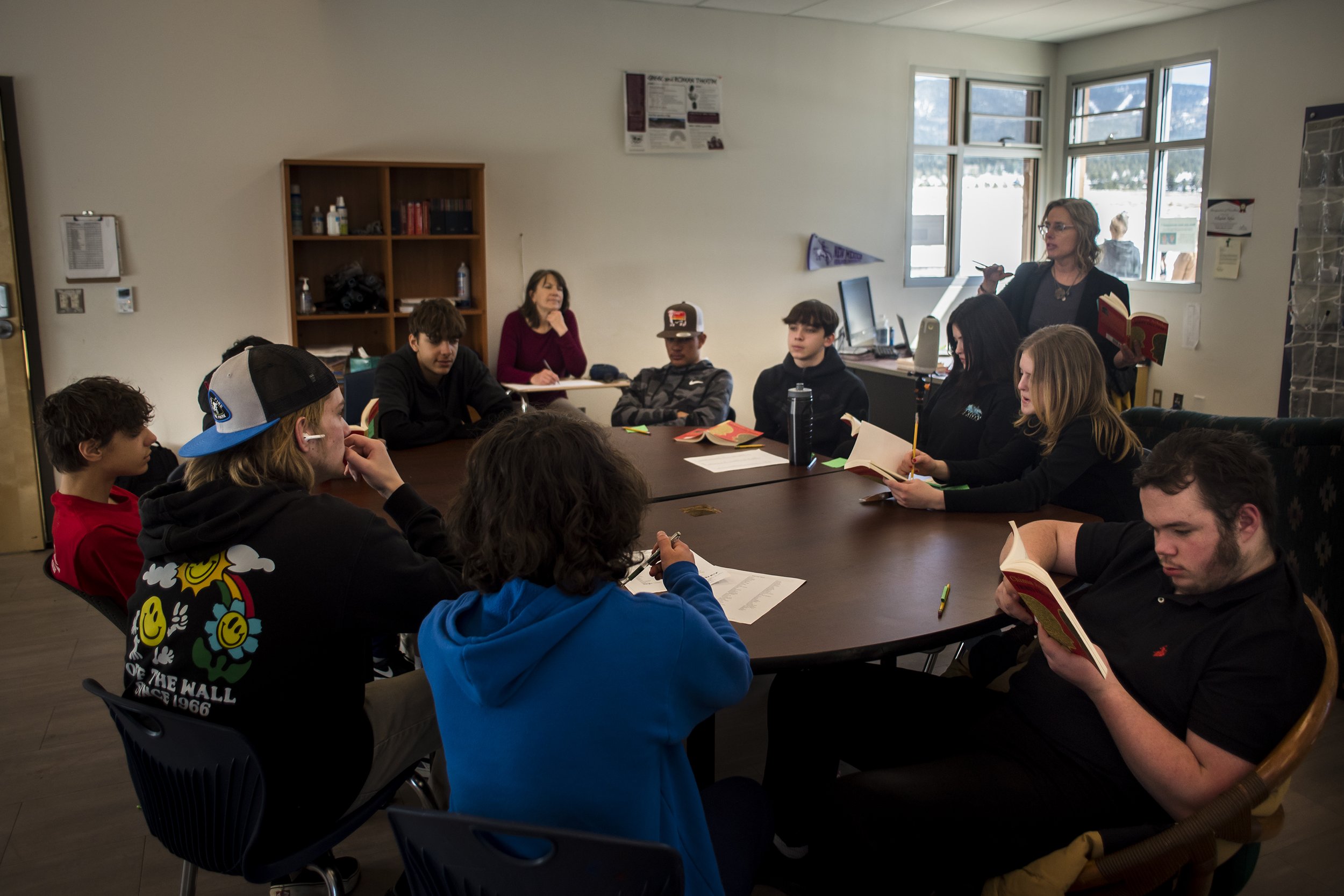
Paideia
PAIDEIA (py-dee-a) from Greek pais, paidos: the upbringing of child. (Related to pedagogy and pediatrics.) In an extended sense, the equivalent of Latin humanitas (from which “the humanities”), signifying the general learning that should be the possession of all human beings.
The Paideia movement is inspired by the 12 Principles of Paideia Philosophy, calling for high-quality education for all children.
The Paideia Program is a curriculum that embodies three approaches to teaching: Socratic Seminar, Academic Coaching and Didactic Instruction. MVHS supports innovation, critical thinking and active student participation.
MVHS follows the regulations of the North Central Accrediting Association of Secondary Schools and Colleges, the New Mexico Department of Education, and the Moreno Valley High School Charter, regarding high school graduation requirements.
Paideia Schools: Learning to Think through Socratic Seminar
-
A collaborative, intellectual conversation facilitated by open-ended questions about a text. The conversation is intended to expand understanding of ideas and values. The teacher’s primary role is to ask questions that help students think further about ideas under discussion.
-
Guides and supports students’ development of curricular skills while applying information often through individual and group projects; in this model teachers model and encourage good thinking habits and questioning techniques.
-
What many people think of as conventional education; direct, lecture-format delivery of factual information.
The 12 Principles of Paideia Philosophy
We, the members of the Paideia Group, hold these truths to be the principles of the Paideia Program:
that all children can learn;
that, therefore, they all deserve the same quality of schooling, not just the same quantity;
that the quality of schooling to which they are entitled is what the wisest parents would wish for their own children, the best education for the best being the best education for all;
that schooling at its best is preparation for becoming generally educated in the course of a whole lifetime, and that schools should be judged on how well they provide such preparation;
that the three callings for which schooling should prepare all Americans are, (a) to earn a decent livelihood, (b) to be a good citizen of the nation and the world, and (c) to make a good life for one’s self;
that the primary cause of genuine learning is the activity of the learner’s own mind, sometimes with the help of a teacher functioning as a secondary and cooperative cause;
that the three types of teaching that should occur in our schools are didactic teaching of subject matter, coaching that produces the skills of learning, and Socratic questioning in seminar discussion;
that the results of these three types of teaching should be (a) the acquisition of organized knowledge, (b) the formation of habits of skill in the use of language and mathematics, and (c) the growth of the mind’s understanding of basic ideas and issues;
that each student’s achievement of these results would be evaluated in terms of that student’s competencies, and not solely related to the achievements of other students;
that the principal of the school should never be a mere administrator, but always a leading teacher who should be cooperatively engaged with the school’s teaching staff in planning, reforming, and reorganizing the school as an educational community;
that the principal and faculty of a school should themselves be actively engaged in learning;
that the desire to continue their own learning should be the prime motivation of those who dedicate their lives to the profession of teaching.
Learn more by visiting the National Paideia Center’s website

